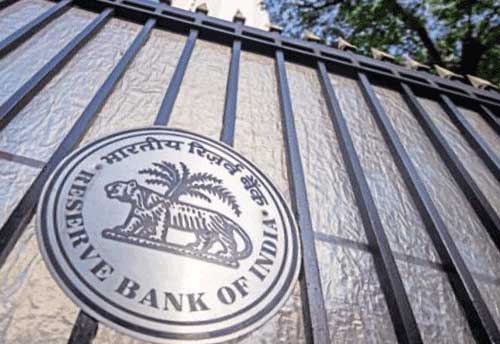Relief for MSME borrowers registered under GST; RBI removes credit caps on MSME (services) under priority sector
Updated: Feb 07, 2018 11:08:40am

Relief for MSME borrowers registered under GST; RBI removes credit caps on MSME (services) under priority sector
Mumbai, Feb 7 (KNN) In a relief for the MSMEs, the Reserve Bank of India (RBI) today announced measures for the MSME borrowers who have registered under Goods & Services Tax (GST) and has also announced removal of Credit Caps on MSME (Services) under Priority Sector.
In a Statement on Developmental and Regulatory Policies – February 2018, RBI said “The formalisation of business through registration under Goods and Services Tax (GST) adversely impacted cash flows of the smaller entities during the transition phase with consequent difficulties in meeting their repayment obligations to banks and non-banking financial companies (NBFCs).”
RBI said, “As a measure to support their transition to a formalised business environment, it has been decided that for the GST-registered Micro, Small and Medium Enterprises (MSMEs) which were standard as on August 31, 2017 and for which the aggregate exposure of banks and NBFCs does not exceed Rs 250 million as on January 31, 2018, the amounts overdue as on September 1, 2017 and payments due between September 1, 2017 and January 31, 2018, be allowed by banks and NBFCs to be paid not later than 180 days from their original due date, without a downgrade in asset classification.”
On Removal of Credit Caps on MSME (Services) under Priority Sector, the apex bank said, “In the light of feedback received from various stakeholders and in line with the increasing importance of services sector in our economy, it has been decided to remove the currently applicable loan limits of Rs 50 million and Rs 100 million per borrower to Micro, Small and Medium Enterprises (Services) respectively, for classification under priority sector.”
Accordingly, all bank loans to MSMEs, engaged in providing or rendering of services as defined in terms of investment in equipment under Micro, Small and Medium Enterprises Development (MSMED) Act, 2006, shall qualify under priority sector without any credit caps, said the central bank.
On applicability of sub-targets of Small & Marginal Farmers and Micro Enterprises for foreign banks with 20 branches and above, RBI said, “In order to achieve level-playing field in the priority sector lending guidelines for banks, it was stipulated in April, 2015 that post 2018 (i.e., after three years from the issuance of guidelines), the sub-targets for lending to small and marginal farmers and micro enterprises shall be made applicable for foreign banks with 20 branches and above.”
It has been decided that the sub-target of 8 percent of Adjusted Net Bank Credit (ANBC) or Credit Equivalent Amount of Off-Balance Sheet Exposure (CEOBE), whichever is higher, will be made applicable for lending to the small and marginal farmers for foreign banks with 20 branches and above from FY 2018-19. Further, the sub-target for bank lending to the Micro Enterprises in the country of 7.50 percent of ANBC or CEOBE, whichever is higher, will also be made applicable for foreign banks with 20 branches and above from FY 2018-19.
The Reserve Bank also introduced the Marginal Cost of Funds based Lending Rates (MCLR) system with effect from April 1, 2016 on account of the limitations of the Base Rate regime. With the introduction of the MCLR system, it was expected that the existing Base Rate linked credit exposures shall also migrate to MCLR system. It is observed, however, that a large proportion of bank loans continue to be linked to the Base Rate despite the Reserve Bank highlighting this concern in earlier monetary policy statements.
Since MCLR is more sensitive to policy rate signals, it has been decided to harmonize the methodology of determining benchmark rates by linking the Base Rate to the MCLR with effect from April 1, 2018. Necessary instructions will be issued by the end of next week.
Currently, the Reserve Bank’s repo directions are issued separately for Government Securities and corporate debt. These directions specify, inter-alia, entities eligible to undertake repos and minimum credit rating of corporate bonds that may be used as collateral. With a view to harmonizing regulations across different types of collateral and also to encourage wider participation, especially for corporate debt repos, the repo directions are proposed to be streamlined and simplified. The revised directions will be issued by the end of this month.
RBI has also introduced an Ombudsman Scheme for customers of Non-Banking Finance Companies.
It said, “With a view to providing customers of Non-Banking Finance Companies (NBFCs) with a cost-free and expeditious grievance redress mechanism, it has been decided to introduce an Ombudsman Scheme for NBFCs. The scheme will cover all deposit taking NBFCs and those with customer interface having asset-size of Rupees One Billion and above. To begin with, the Scheme will be operationalised by the end of this month for all deposit taking NBFCs.” (KNN Bureau)











